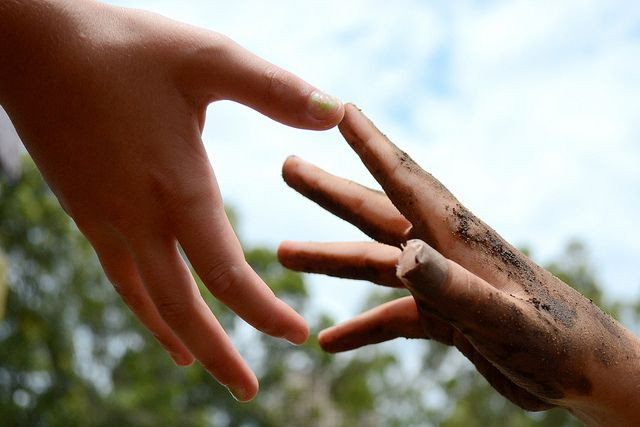Empathy Is Triggered By Positive Experiences Among Strangers: Study

Positive experiences with strangers trigger a learning effect in the brain, which increases empathy, suggests a new study from University of Zurich. Importantly, the researchers say it takes only a handful of positive learning experiences to become more sensitive to another’s feelings.
“Most of my research combines functional magnetic resonance imaging (fMRI) with paradigms and methods from social psychology and behavioral economics,” Dr. Grit Hein, a psychologist, neuroscientist, and lead author of the current study, said in her bio.
In one of her previous studies, soccer admirers witnessed a fan of their favorite team or a fan of a rival team experience pain. Next, the researchers gave participants the ability to choose to reduce this other person’s pain by enduring physical pain themselves. Watching the trials, the researchers learned they could predict which participants would help a suffering supporter of their own team. These helpful participants showed activity occurring in their anterior insula as they watched the other person suffer and also directly expressed their concern. At the same time, there were obvious signs to predict those who were unwilling to help a fan of the opposing team. In these cases, the participants not only reported a negative evaluation of the person in pain, but the researchers saw activity occur in their nucleus accumbens as they watched the other person suffer.
The anterior insula is believed to play a role in consciousness and emotion, the authors of the study reported, while the nucleus accumbens is said to help us cognitively process aversion, motivation, pleasure, reward, and reinforcement learning.
For the current study, Hein and her colleagues focused on the lack of compassion commonly felt for people from different nationalities or cultures. By most accounts, this absence of feeling stems from the perception of someone else as “other.” Can empathy for strangers be learned? Is it our actual encounters with others that influence our brain responses and so our feelings?
Strangers
The research team designed an experiment where they measured brain activation in participants who had had positive experiences with a member of their own group (referred to as the in-group) or someone from another group (referred to as the out-group). While participants were told to expect painful shocks to the backs of their hands, they also knew a member of their ingroup or a member of their outgroup could spare them pain by paying money.
Measuring each participant’s brain activation during each trial, the researchers observed how a stranger's pain triggered a weaker response in participants than when they observed an ingroup member experiencing pain. However, following a handful of positive experiences with someone from the outgroup (i.e., the outgroup member paid money to prevent the participant experiencing a shock), participants showed a significant increase in empathic brain responses whenever they witnessed someone new from the out-group undergoing a shock. In fact, the stronger a positive experience, the greater was their increase in empathy.
"Our findings show that empathy with an out-group member can be learned and generalized," Hein and her colleagues wrote in their conclusion. "Thus, our study provides a mechanistic account of how positive contacts with the out-group can counteract empathy deficits." Seemingly, based on this study, random acts of kindness might pave the road toward a more peaceful world.
Source: Tobler P, Engelmann J, Vollberg M, Hein G. How learning shapes the empathic brain. PNAS. 2015.



























